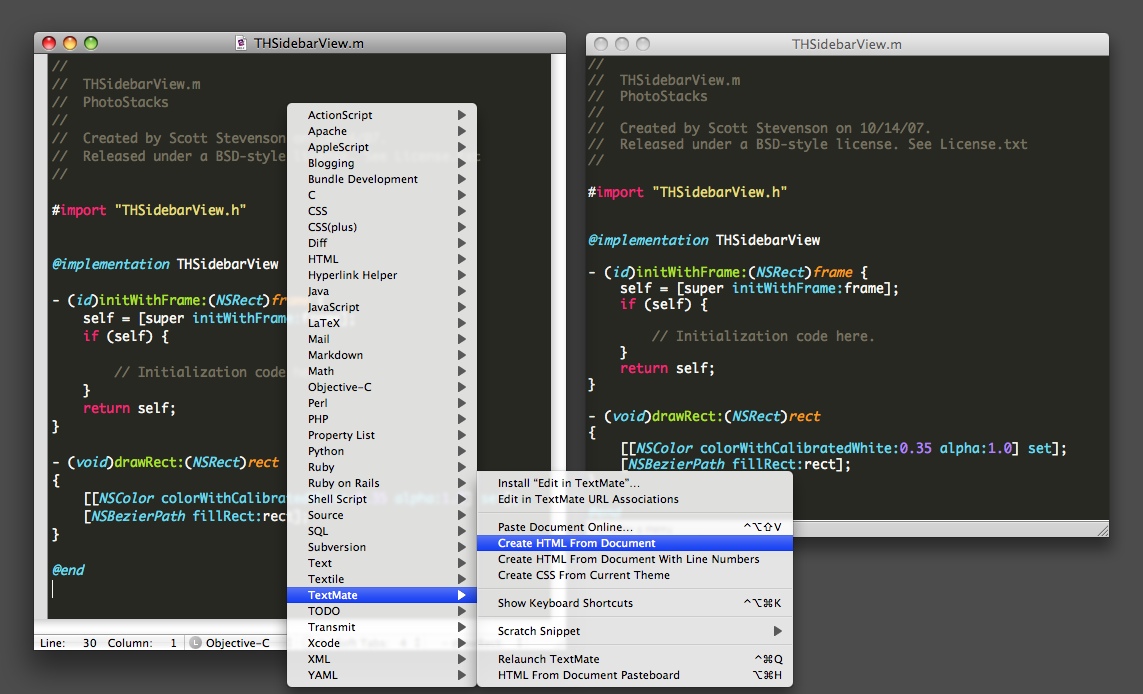



Next to TextMate I always have one or more iTerm2 panes open in the same directory as the project I'm working on. Over the course of a week, it's not unusual for me to work on: Python, Javascript, Makefiles, YAML, C, Objective-C, C++, Groovy, Java, shell scripts, Markdown, and plain text files, with nearly 100% of those files in git repos. I navigate through a lot of languages and file types throughout my day. I've been using TextMate since 1.0 when it was the darling editor of the Ruby on Rails community, though I've never been a Rails developer and I hardly ever edit Ruby files that aren't Chef or Homebrew or Cocoapods DSL files. It's still the only editor I've found that's powerful enough for my needs and small enough to fit into my head, that feels like a Mac app, but is extensible using all the power of Unix under the hood. Huh, I thought I was the last person using TextMate. I'm surprised that his predictions don't match with what we have. I don't mean this as a disagreement to the article - Rust gives developers tools to make high quality software! The Rust project itself is superb. Fine if you use the libraries that are thin wrappers on the C APIs, but ones that try to apply a Safe or Rusty API are lower quality. Graphics programming - Churn, and low-quality results compared to C libraries eg for Vulkan. Internally, dependency hell, and filled with generics and Async. Backend web dev - Several Flask analogs, but nothing that makes sense to use for a web page. Dependency hell, poor APIs, hardware support that's been designed to make trivial examples and never tested on practical firmware etc. Most of the higher level libraries, and the chat on Rust embedded communication channels are a mess. There are a handful of high-quality tools (eg probe-run, defmt, SVD2Rust etc). In practice, most of the Rust OSS I find is poor quality, ie the article's lament of "today's software quality crisis – crashes, bloat and more." I'm suspicious my observations are because I'm viewing select slice of Rust code perhaps the higher quality code examples aren't OSS, so I haven't seen them. I think his or her points about why Rust should encourage high quality programs makes sense. My experience with Rust codebases has been different from the Author's.


 0 kommentar(er)
0 kommentar(er)
